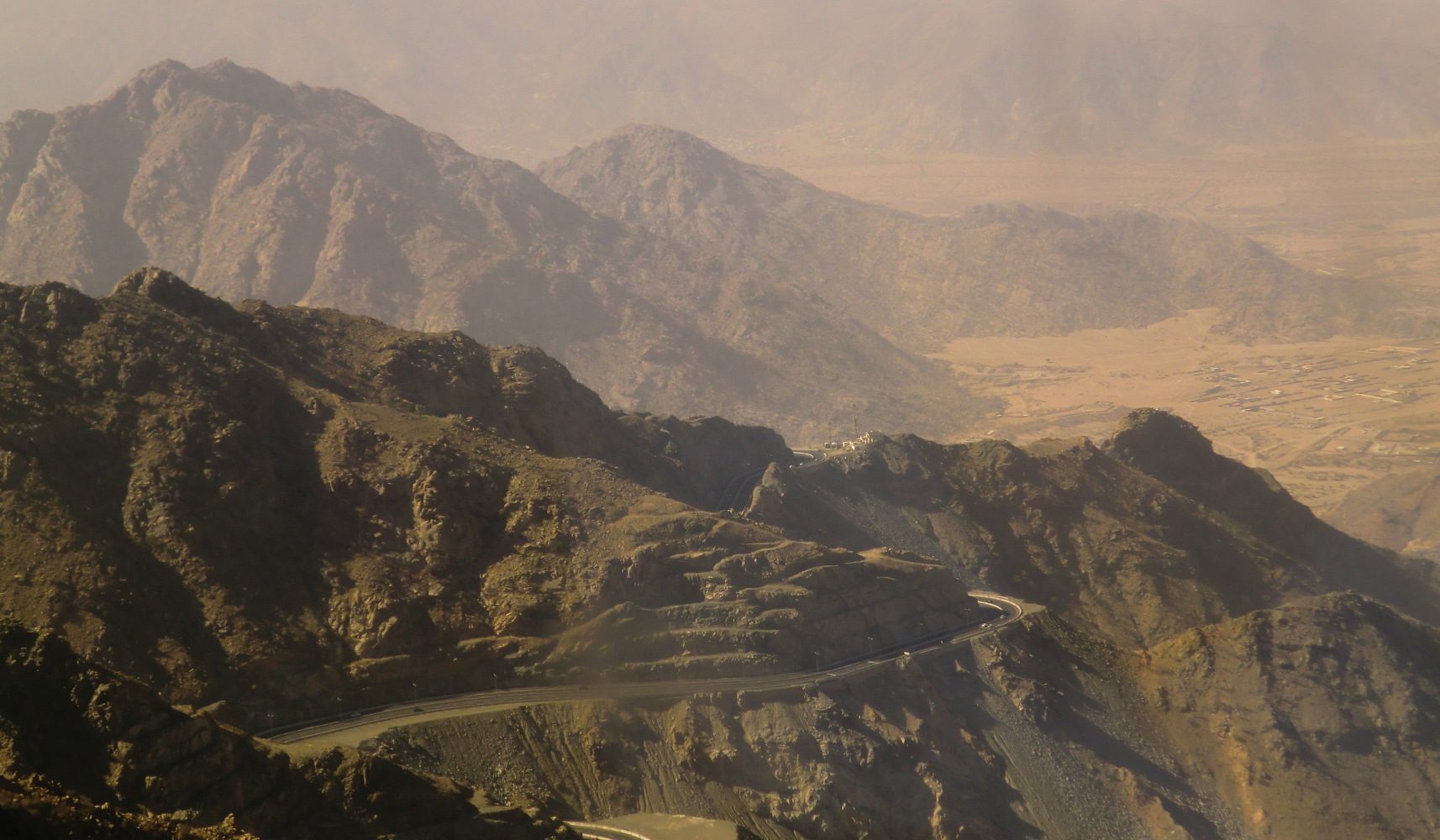The times when the Quran most appeals to me are its moments of taking stock of the natural world. I am always in awe of nature, and so when the Quran likewise takes in the natural world with awe, I am drawn sympathetically to it. Today’s surah looks at the natural world and draws from it praises for God. As such, it is fitting that the opening ayah names God Faatir, “Originator,” and that this name is taken for the surah’s title. So please, take some time to read the brief 45 ayat of today’s surah, and then compare your impressions with mine below.
Natural Awe
By and large, the Quran’s focus on nature is mostly for the purpose of making arguments against humans. Most of the images are drawn to declare the utility of the natural world to humankind, and moreover humankind’s dependence upon these things over which they have no control, thus teaching mankind to recognize that the world was designed for them and that there was one coherent designer. God’s control and knowledge of nature is also emphasized to contrast His own position with nature to mankind’s. So looking at nature is pretty much for human benefit in the Quran, as the whole point of such is to instill in them an awareness of their dependence and smallness. Even passages that might not naturally read in this direction are pulled so by argumentative punctuations along the lines of “so will you not reason?”
The nature content in this surah is consistent with the Quran’s established argumentative use of nature, though I’d argue it is less human-centric than in other cases we’ve seen. When fruits and animals are mentioned, it is not to say that such things were subjected to mankind for their utility. The only thing explicitly related to humankind are the foods and pearls that come from fresh and saltwater, but otherwise the benefits of mentioned items to humans are left implicit. Human weakness is also less in view than God’s omni-competence. God is shown creating winds, setting the cosmos, predestining the birth and death of human individuals, and holding creation in existence. Though the talking points contrasting human dependence and divine independence are explicitly present within this surah, the natural imagery is not being used for such purposes. By and large, the imagery today is utilized much more with an intent to praise God rather than convince man.
I think my favorite ayat, perhaps my favorite of all the Quran’s imagery, would be the pair 27-28. These ayat look at the world for no utilitarian theme, but rather just to voice pure admiration for it. The world is colorful. The world is diverse.
So what would the beauty of the earth have looked like to the Meccans and Medinians? Among these people were tradesman and mercenaries who had traveled out of the Arabian peninsula, but we forget often that Muhammad’s listeners were townies, many of whom might never have had reason to leave their native regions. So what natural imagery was closer to Muhammad’s listeners? When I hear of rocks of varying shades, my mind jumps immediately to the beautiful rock formations of America’s western landscapes, with all their stripes and stark color changes. Maybe to Muhammad’s listeners would’ve seen and thought of these mountains from central and western Arabia:







The Arabian penninsula has plenty of gorgeous, colorful, diverse sceneries to stand in awe of. It would be lovely to explore the kinds of livestock, wildlife, fruit, and ethnicities that its listeners might’ve thought of too, but for today we’ll have to settle with their mountains and just be mindful of the awesome variety the world holds for us as we know it now. And of course the Quran posits that those who are filled with the most awe are those who behold such diversity as something sustained by an awesome God.
Praise vs. Self-Praise
Perhaps the reason why I am more receptive to the surah’s natural imagery today also has to do with the literary device of personhood. I’ve taken to summarizing much of the Quran’s rhetoric as “divine flexing” because it is at base God boasting and posing in order to make humans feel small. Much of why this starts feeling unsatisfying is because the voice of this divine flexing is in first-person, “I” or “We.” It is like we’re being set before a version of God who’s preoccupied with showing off and talking down to us. Today’s surah employs reference to God in the third person to a greater extent than prior bouts of divine flexing have. Praising God in the third person gives this praise a more human voice, like we’re being taught about God by an equal. This strikes a different emotional register in me as a listener.
Something I have to remember when I warm up to the Quran praising God in the third person is that the Quran never concedes itself to be from the voice of a man. I respond better to these passages because it feels like being directed to look up from someone at my own level, but that isn’t something the Quran would ever admit to doing. Since the Quran presents itself as the direct words of God, even when it is speaking about God in the third person you have to remember it’s supposed to be understood as speech directly by God. Actually it’s a little weirder, when you think of it, so read these passages as God complimenting Himself in the third person. Perhaps it should be more emotionally preferable to just hear God praise Himself directly in first-person, as by the Quran’s rules that would actually be more honest of a self-presentation.
So here’s a question: can God be arrogant? We usually define things like boasting and arrogance with reference to some excessive sense of self. But with God, a being whose scale has no limits, can there be such a thing as an excess of self? It is easy to walk away from the Quran and have a bad taste for the “arrogance” of God as it presents Him, but is that true of the situation or is that just a transfer from how we’d react to a human talking in such a way? Part of the mental conformity the Quran trains into its adherents is recognizing that God cannot boast, cannot aggrandize Himself, cannot be rude to humanity. God is too “too” to overstate Himself. Maybe we humans don’t like how much time God spends saying He’s too big and independent to really care about our existence, and that we are dependent upon the whims of His mercy –but that doesn’t matter because the situation of God’s omnity is true regardless of our feelings. The Quran is here to be harsh to human ego in light of what it presents as ultimate reality, but then to assure humans that once they accept the situation and work within it things will turn out just fine for us. And while you might not like the Quran, I do think it’s a pretty typical realization by any mindful belief system that humans are small, subject to forces we cannot control (whether supernatural or merely natural), and must recognize themselves as such in order to properly function and thrive. It is not disagreement with the Quran’s outlook on this topic that I ultimately contend with.
Not Alike
A general motif in this surah is contrasting things that are “not alike.” The blind and seeing, living and dead, shade and heat, fresh and salt water. This is all serving to present humanity as divided into believers and unbelievers, and thereby explaining to Muhammad why not all mankind is responding positively to his message (ayah 22). That being said, I do find the inclusion of the fresh and salt water out of place, because the relevant passage concludes that good things come equally from both. It is as if the surah conflated a verse intended to impress awe and gratitude upon humankind with one intending to communicate moral contrast.
Held in contrast is the omnity of God and the nothing-ness of false gods. God is the Originator, the sustainer of the cosmos, but false gods can do nothing. The surah wavers on whether the false gods are purely hollow imaginings or merely impotent ones. The Quran has diversely interpreted the reality of other dieties, ranging from figments of imagination, to impotent trickster beings, to saints who never intended to be worshiped. Given the diverse origins of gods in polytheist pantheons, we can allow that this inconsistency is reflective of such diversity. Also held in contrast is the truthfulness of God who invites you to reward and the deceitfulness of The Satan who invites you to The Blaze.
Held in contrast are moral awareness of the believers and disbelievers, and their ultimate fates. We’re getting to some of the earlier phase of Muhammad’s ministry in which he described Paradise in terms that are a little more frivolous in their imagery (not just wholesome gardens and springs, but luxury garments and trinkets). Because the believers have proven their faith and hold their gratitude to God in heaven, there is no sin or issue with taking pleasure in material goods and Paradise is shown to be supplied with them. Immediately after this comes a declaration (without elaboration or vindictiveness, mind you) of the fates of disbelievers. Ayah 36 probably most decisively seals off any theological options of annihilationism or universal reconciliation for Islamic views on Hell. The wording is very simple and clear, with no frilly vocabulary or difficult grammar: “for those who disbelieve are the fires of hell, not is decreed for them that they die nor that their torment be lightened…” Now, there are some hadith which do present the idea that hell will one day be empty. I guess the one way to work around this ayah is to say that they will never die or feel their punishment lessened while in Hell, but that they will one day be removed from Hell. That requires giving the hadith authority to interpret the Quran, not just supplement it.
Conclusion
The theme of contrast further permeates this surah, but I’ll leave that to your own parsing. These are themes and images that we have seen before and will continue to see. By the end of this surah, the contrast is a little diminished by the declaration that if God really judged every individual for their deeds, no creature would remain on the surface of the earth. By that statement, it is communicated that nothing on earth is deemed by God to actually be perfect, and in that way all things are quite alike. So that God postpones judgement and lowers the bar to a point where things can be held in contrast, that is part of what makes Him so merciful in Islamic thought.
